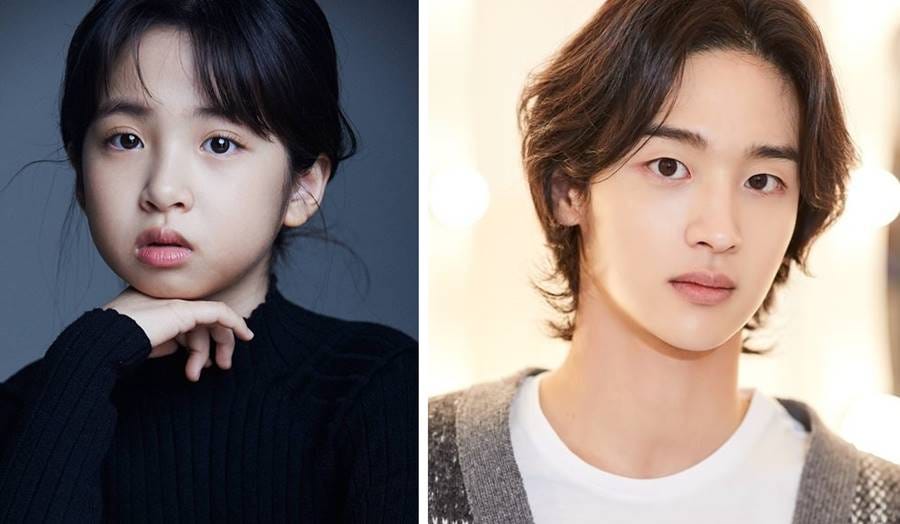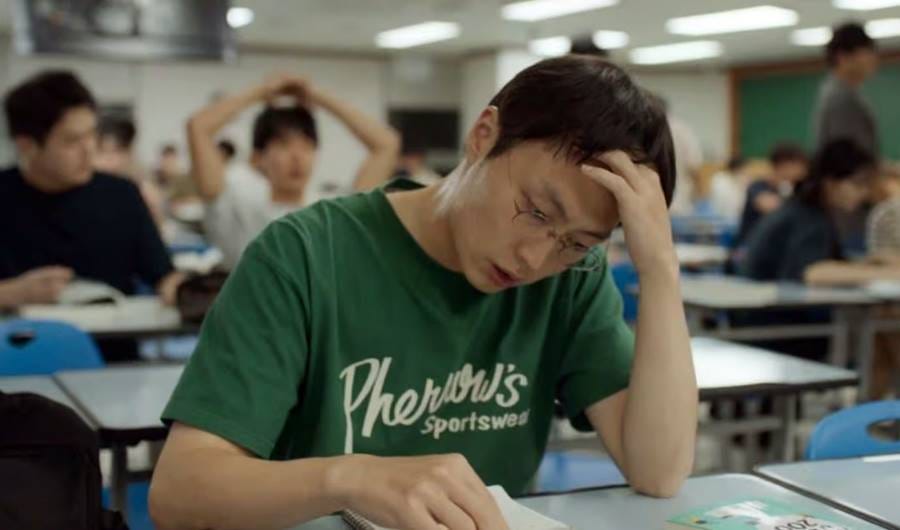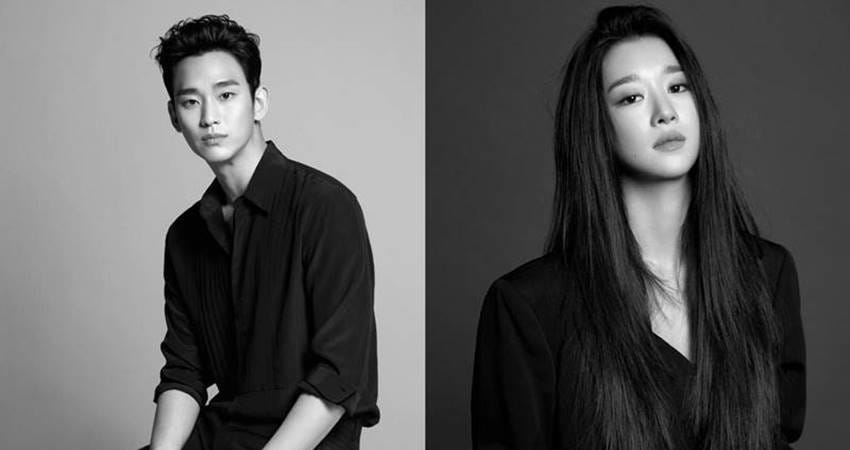"Daily Dose of Sunshine" Tackles Mental Health Issues
This must-see K-drama is based on a novel by former psychiatric nurse Lee Ra-ha and helmed by "All of Us Are Dead" director Lee Jae-gyu
☆☆☆½ (out of ☆☆☆☆)
Jung Da-eun (played by Park Bo-young)
Dong Go-yun (played by Yeon Woo-jin)
Song Yu-chan (played by Jang Dong-yoon)
Song Hyo-shin (played by Lee Jung-eun)
↑Note: Korean names denote the surname followed by the given name.
At the end of "Daily Dose of Sunshine," the protagonist says, "All of us are standing on the border between normal and abnormal." And that right there is the thesis for this K-drama, which centers on a nurse who tackles a new gig in a psychiatric ward.
Helmed by "All of Us Are Dead" director Lee Jae-gyu and based on the novel by former psychiatric nurse Lee Ra-ha, "Daily Dose of Sunshine" tackles the real world problems of how brutal society can be to people suffering from mental health issues. You often can't see the disease, so therefore it must be a you problem that isn't a real issue. People may label you as an attention seeker who is making things up just because.
This series reinforces that none of us are perfect. And having a manageable disease shouldn’t preclude you from living a productive life.
I honestly didn't love the first couple episodes of this series and stopped watching it for a while. While I am a Park Bo-young fan, it was difficult to warm up to her role. Her voice was whiny and she didn't have a spine. She had to go running for help to ask what it meant to be bipolar. (I know that as a new psychiatric nurse, she can't be expected to know everything. But that's a basic term she should've at least been familiar with.) But in retrospect, I think she was initially directed to be annoying so that viewers could watch her growth throughout the subsequent episodes.
There are a lot of subplots going on and I'm going to concentrate on some of the most meaningful ones. NOTE: There are some spoilers in this review (with the biggest spoilers in the Spoiler Alert at the bottom).
• I loved the story arc that followed Seo-wan's journey. Beautifully portrayed by Roh Jae-won, Seo-wan is a 28-year-old who had graduated from a good university, but has been unsuccessful in multiple attempts to pass the civil service exam. Each year he tries and each year he fails by just one or two answers. When his parents beg him to stop and try doing something else, he tells them that he has already invested so much time that it would be a waste to stop now. It's not that he doesn't want stop, he is unable to stop.
At the psych unit, he bonds with Da-eun (Park Bo-young), who at her last job was chastised for spending too much time with patients. And while her method may not be appreciated by the bean counters who want as many patients treated as possible in a day, sometimes spending that extra time to talk about their passions (in Seo-wan's case, video games) can help patients feel heard, and therefore heal.
• There is a patient who tries to gouge out a non-existent tumor from the side of his neck. After their baby died, his wife hung herself. During their grieving period, he thought the best thing for him to do would be to be strong for her. He went to work, didn't express his emotion and lived each day as if nothing catastrophic had happened to them. But in retrospect, all it did was make her feel as if she was alone. Though this wasn't mentioned on the show, I am positive that some well-meaning friends and family members told them things like, "You're young, you can have have another baby." Which is the worst thing you can possibly say. Children aren't replaceable.
• In Episode 8, a young woman who tries to take control of her life by cutting her wrists says that she would really like the nurse to like her. The nurse says something so simple and profound: Before looking to others for affirmation, she needs to like herself and regard herself as precious. This is one reason why I love Jin's 2018 song "Epiphany" so much. It's a sincere reminder to treat yourself with love and affection.
• A tragedy with one of her patients sends Da-eun into a spiral. She compensates for her own depression by overworking and being on-call for everyone. Finally, she admits that everyone keeps asking if she's OK, but she's not. This arc drives home that even medical professionals (or maybe especially medical professionals) battle with grief and depression from everything that they witness daily and do for others. Her own mother is insulted when a doctor suggested that Da-eun seek psychiatric help. Her views are applicable to many people: mental health help is for other people, not my family. It takes a suicidal attempt before her mother realizes that Da-eun needs to enter a psychiatric ward.
• Of course, this being a K-drama, there are two male leads who are both interested in Da-eun. Yu-chan (Jang Dong-yoon) is her childhood friend. They grew up like siblings. The other is proctologist Go-yun (Yeon Woo-jin) who has his own issues: he obsessively cracks his knuckles to the point where they cause discomfort to his patients. Both are handsome. I was rooting for Yu-chan all the way to the end. I'll talk more about that in the Spoiler Alert below.

Da-eun isn't allowed to have a phone or TV in the psych ward, so in Episode 9, Yu-chan watches K-dramas that he doesn't like watching so that he can relay the plot for each episode to her. Da-eun's mother asks why he's forcing himself to watch things he doesn't want to. And he tells her that he read an interview with a screenwriter who said that they try to leave each episode with a cliffhanger so that viewers will come back, even if they're depressed. Maybe they won't consider harming themselves so that they can survive to see what happens next. Clearly this wasn't meant to say that a K-drama can save anyone's life. But this does seem to be a small element of why K-dramas have resonated with so many viewers worldwide, including a good chunk of viewers who don't speak Korean at all. They are addictive...but in a good way.
• There was one sub plot that was meant to be sweet, but started off uncomfortably problematic. A psychiatrist, Yeo-hwan (Chang Ryul, who I loved to hate in "My Name") keeps asking a pretty nurse for a date. She tells him no multiple times. He tells her he wants to know why. And the reality is that she owes him nothing. No literally means no. She knows he likes her. The ball should be left in her court to pursue him. Chasing after a woman — especially one who's a subordinate at work — raises all kinds of red flags.
Airdates: Twelve episodes (ranging from 52–72 minutes) dropped on Netflix on November 3, 2023.
Spoiler Alert: After being discharged from the psych ward, Seo-wan meets some younger students who are studying for the civil service exam. As a veteran test taker, he warns them that if they're not careful, they can get caught in the same rut as him. He ends up dying by suicide. And Da-eun, who was partially responsible for his discharge when he clearly didn't want to leave the hospital, goes on a downward spiral.
Meanwhile, Deul-re's (Lee Yi-dam) has an epiphany of her own. She had become a nurse to pay off her mother's gambling debts. But she's finally ready to attempt to be happy with her own chosen career. Yeo-hwan is supportive of her decision to quit her job and work on a cruise line with her friend for at least a year. They are dating at this point, and he doesn't try to cling onto her. Rather, he encourages her to pursue her dreams — or figure out what her dream is.
When she tells Da-eun she's leaving, the latter asks her: "But isn't that a waste of all the time you've spent being a nurse?" There was an eerie parallel between her line of thinking and what Da-eun's former patient, Seo-wan, had told his parents when they suggested he stop taking the civil service exam and pursue something else.
Going to work every day to a job you don't like, to one that doesn't make you happy... That is a form of self punishment that many of us have to do because maybe it's our only option. However, if you have something else you'd like to try and can afford to do so, why not go for it? Deul-re can always go back to nursing if it's something she'd like to pursue again in the future.
To my disappointment, Da-eun picks the kindly and handsome proctologist over the kindly and handsome childhood friend. But the latter wins something more valuable than her (in my opinion). He's able to work again in an office setting without being a doormat. He gets treated for his panic disorder, where he felt like he was suffocating and drowning at his previous job from being overworked. When his new position looks like it will be similar, he stands up for himself. When he's questioned why he's leaving at the end of the designated work day, he says, "I would be violation of the contract I signed if I stayed later than 40 hours per week. So I'm heading home now."
Instead of getting fired, his boss and colleagues all start leaving at 6 p.m. sharp as well. That is a fairytale in Korea right now (and frankly, at the newspapers that I worked at in the U.S. as well), but hopefully it will become a reality in the near future as management realizes that employees work best when they're rested and not overburdened with additional work thrown at them at the last minute.
© 2023 JAE-HA KIM | All Rights Reserved







This is by far my favorite K-drama. Mostly because I have some personal experience with intensive mental health care, and this show is so true to those experiences.
Another reason I loved this one is I loved the proctologist. The way he didn’t feel compelled to crack his knuckles when he was with her. How he would wait for her at the bus stop (swoon), the way he called her doctor to check up on her (this also touched a nerve: I’ve seen families do this.)
You could tell she was going to pick him when she asked for an enema while in the hospital—she really needed a proctologist. 😂